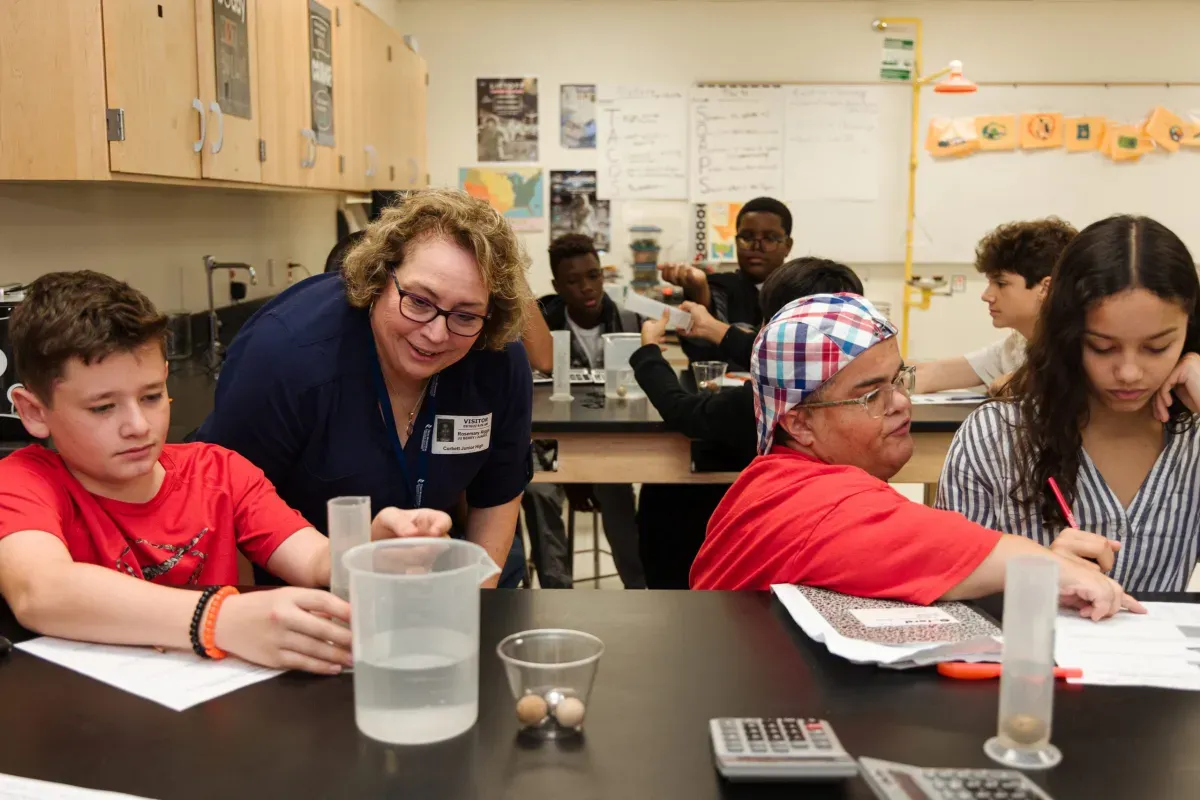
Texas Biomed strengthening STEM pipeline, igniting student interest in science
It’s a common refrain: Texas schools aren’t keeping pace with preparing young people for in-demand STEM careers. Educators want to equip students with knowledge and skills to gather data and evaluate evidence, but it’s difficult making connections in the classroom that apply to real-world scenarios.
Texas Biomedical Research Institute (Texas Biomed) aims to change that, with the help of a $1.25 million science education grant designed to impact up to 8,500 students in local middle and high schools over the next five years. The project, with funding from the National Institutes of Health (NIH), supplements teaching practices and promotes scientific literacy, thereby strengthening the STEM careers pipeline.
“Winning this federal grant was a competitive process and it complements the Institute’s overall Discovery & Learning Initiative,” said Joanne Turner, Texas Biomed’s Executive Vice President for Research. “We are very proud to be partnering with local school districts serving mostly economically disadvantaged students — places that tend to be under-resourced when it comes to the kind of teaching and hands-on learning it can take to get kids interested in science for the long-term.”
“I think the one of the most dreaded questions a teacher can get is, ‘When am I ever going to use this information?’” said Rosemary Riggs, Texas Biomedical Research Institute’s education and outreach specialist, who also was a high school science teacher for 10 years. “A lot of students can’t understand why balancing an equation or learning about molecular structure might be important because they don’t think it relates to everyday situations.”




